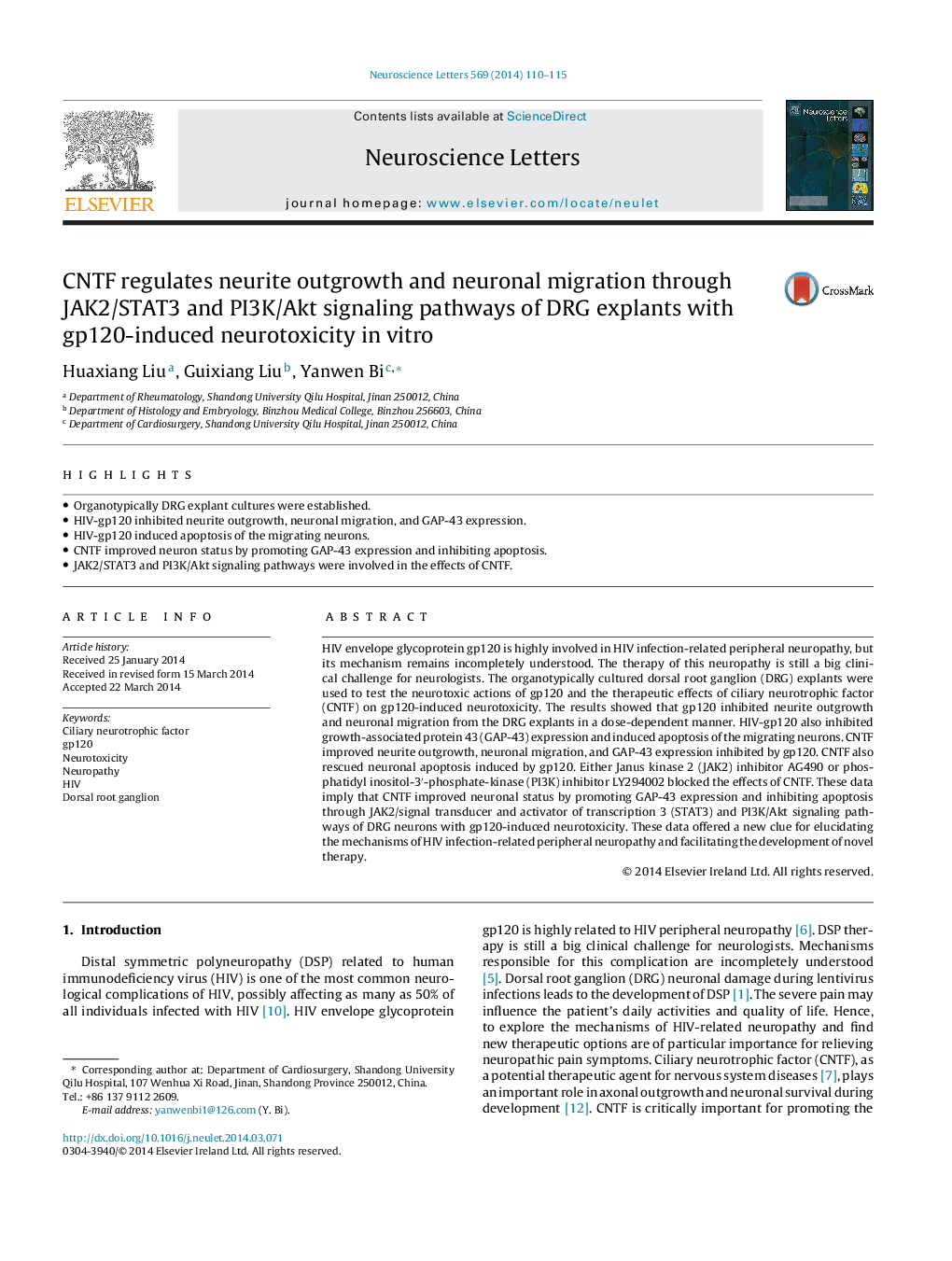| Article ID | Journal | Published Year | Pages | File Type |
|---|---|---|---|---|
| 6282014 | Neuroscience Letters | 2014 | 6 Pages |
â¢Organotypically DRG explant cultures were established.â¢HIV-gp120 inhibited neurite outgrowth, neuronal migration, and GAP-43 expression.â¢HIV-gp120 induced apoptosis of the migrating neurons.â¢CNTF improved neuron status by promoting GAP-43 expression and inhibiting apoptosis.â¢JAK2/STAT3 and PI3K/Akt signaling pathways were involved in the effects of CNTF.
HIV envelope glycoprotein gp120 is highly involved in HIV infection-related peripheral neuropathy, but its mechanism remains incompletely understood. The therapy of this neuropathy is still a big clinical challenge for neurologists. The organotypically cultured dorsal root ganglion (DRG) explants were used to test the neurotoxic actions of gp120 and the therapeutic effects of ciliary neurotrophic factor (CNTF) on gp120-induced neurotoxicity. The results showed that gp120 inhibited neurite outgrowth and neuronal migration from the DRG explants in a dose-dependent manner. HIV-gp120 also inhibited growth-associated protein 43 (GAP-43) expression and induced apoptosis of the migrating neurons. CNTF improved neurite outgrowth, neuronal migration, and GAP-43 expression inhibited by gp120. CNTF also rescued neuronal apoptosis induced by gp120. Either Janus kinase 2 (JAK2) inhibitor AG490 or phosphatidyl inositol-3â²-phosphate-kinase (PI3K) inhibitor LY294002 blocked the effects of CNTF. These data imply that CNTF improved neuronal status by promoting GAP-43 expression and inhibiting apoptosis through JAK2/signal transducer and activator of transcription 3 (STAT3) and PI3K/Akt signaling pathways of DRG neurons with gp120-induced neurotoxicity. These data offered a new clue for elucidating the mechanisms of HIV infection-related peripheral neuropathy and facilitating the development of novel therapy.
